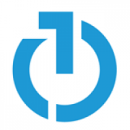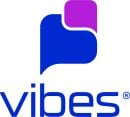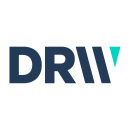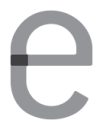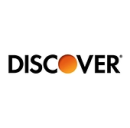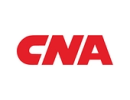Most successes start out as goals.
“If your goal is to be the VP of a company, then make the necessary changes in your career now to open that path,” Evive Director of Product Management Sana Khan said.
If the following women hadn’t identified the type of work that fulfilled them, they wouldn’t currently be software engineers, directors of business technology and chief information officers across Chicago. But such career transformations didn’t happen overnight. These women leaned on mentors for advice along the way, advocated for themselves and stayed the course.
If you find yourself in a similar position, start with the following advice, as outlined below: refrain from comparing yourself to others around your age or in your department. If you haven’t yet made the leap into a new field or industry, emphasize the value your previous experience can bring to a new role –– no matter how different job qualifications might appear.

When and why did you decide to make a career change?
Growing up, my father had always instilled in me working for an honest pay. When I was a teenager, I started waiting tables at a local Mexican restaurant, which eventually led to a 10-year career in hospitality.
After completing my bachelor’s degree in advertising at California State University, Fullerton, I decided to embark on a new venture putting my advertising degree to work. I interviewed with several large, mid-tiered and independent advertising agencies and marketing firms. While I got to the final stages of most interviews, I was ultimately rejected over and over.
I kept applying, writing customized cover letters and tweaking my resume. Despite being in tears in the cab ride home from my final interview at The Trade Desk, I received an offer from our client services department the next day.
What challenges did you face while establishing yourself in this new career and how did you overcome those challenges?
Navigating a new concept of what a career is while helping to strategize marketing spend gave me a good dose of imposter syndrome. So I became a sponge.
To further my development and build confidence, I volunteered to take any opportunity to delve into additional platform training and own client communication for my teams. I always said “yes” or offered my services, no matter how scared I was. I mentally overcame my fears by knowing I was contributing as much as I could to support the larger team.
Effort is key. No one can succeed at anything, especially something completely new, without wanting to contribute. I believe my effort and support point to the decade in hospitality I have under my belt. When I realized I was selected to be part of The Trade Desk team because of these ingrained soft skills and aptitude to learn, I knew the sky was the limit for my professional success.
What advice do you have for other people who are considering making a career change?
Don’t be afraid to bob and weave. I pivoted from constant rejection from advertising agencies to finding my perfect fit at a global demand-side platform. The Trade Desk gave me a chance to become a representative of the future of advertising. Most importantly, I found The Trade Desk’s core values to be an all-encompassing reflection of where I want to be during this chapter of my life.
When and why did you decide to make a career change?
At the time of my career transition, I was working with the product design team as a UI contractor. I was also working closely with software engineers to implement design changes. My work mentor helped me learn Framer X and taught me how to code in React to allow for a simpler handoff from the design team to engineering.
I had so much fun learning to code and working with the different teams that I ultimately decided to transition to software engineering. I realized it fulfilled my desire to learn how things work behind the scenes. The community and culture at Vibes have been welcoming and sympathetic toward a newbie like myself. They keep me engaged and motivated to continue down this new path.
What challenges did you face while establishing yourself in this new career and how did you overcome those challenges?
The overwhelming amount of information and terminology there is to learn. There are multiple ways of implementing something as new patterns and conventions are constantly updated. I have learned to navigate through these challenges by trying to focus on specific areas and frameworks one at a time. I try my best not to jump around too much in order to iterate and retain new information.
What advice do you have for other people who are considering making a career change?
I recommend those seeking a career change to ask questions and learn as much as they can about the culture they’re about to join in order to set realistic expectations. There is no amount of preparation that can make the change any less scary.
If you are seriously considering a career change, then take the chance. Starting anything new is humbling, intimidating and exciting. It is OK to be the less experienced person in the room. Everyone had to start at the beginning at one point in their career. Do not hesitate to ask your team and community when you need help and learn from those more experienced. If something comes up that you are unsure about, just tell yourself, “I don’t know how to do it yet, but it will be an adventure to learn.”
When and why did you decide to make a career change?
Last year, I went through the difficult process of winding down the beauty appointment marketplace I had run for nearly seven years. After working in an environment I had created as my own boss, I had a clear picture of what I wanted my day-to-day to look like. There were two main things I was looking for, and ultimately found, at Reverb.
First, I wanted a company with a product and mission that I could get behind. Reverb’s mission is to make the world more musical by making it easy to buy and sell instruments. After leading a startup, I also wanted to be at a well-resourced company while still having flexibility and opportunities for growth. Reverb was the perfect middle ground: backed by Etsy but still with room to make an impact. Having my list of “must-haves” as I looked for a new job and spoke with my connections helped me find a company that checked all my boxes.
What challenges did you face while establishing yourself in this new career and how did you overcome those challenges?
Coming into any new professional situation can be intimidating. There’s so much to learn about the job and the company. This can be especially humbling if you were previously your own boss and you’re used to being the one with the answers. The best thing you can do is get comfortable asking questions.
From my first interview with Reverb, I could tell that it was a company that values curiosity. On Reverb’s product and engineering team, we practice humility. Everyone is encouraged to ask questions, whether it’s in a large Slack channel or at an all-company meeting.
What advice do you have for other people who are considering making a career change?
Every interview should be two-sided. You’re looking for a company that fits your needs just as much as the company is looking for someone with the right criteria. Ask questions both about the company and the people you’ll be working with.
When I interviewed at Reverb, I asked what success looks like for a product manager. After answering, they flipped the question back to me. That was a great sign. A good company has an idea of what they need but will create space for a person to grow into and make the position theirs over time.
In my first week at Reverb, our chief people officer asked, “What do we have to do to keep you here?” I knew I had made the right move.
When and why did you decide to make a career change?
I decided to take a leap into fintech back in 2014, when the founder of a startup in the payments space approached me to join the leadership team as head of regulatory compliance. At the time, I was working at a large law firm and had spent most of my legal career focused on compliance investigations and regulatory actions involving foreign corruption.
I was eager to join an in-house team that would afford me the opportunity to leverage my legal and regulatory background to help build, grow and scale a business from the ground up. I was also fascinated by using technology to overcome inefficiencies in the movement of money through the traditional financial sector.
I landed the position despite my limited experience in the fintech world. I emphasized the transferability of the skills I had acquired during my law firm career, my deep interest in the company’s value proposition and my ability to adapt and learn quickly. Four years later, my role led me to my current position as AML officer for Cumberland, the crypto-asset arm of DRW.
What challenges did you face while establishing yourself in this new career and how did you overcome those challenges?
I faced two main challenges following my transition. The first challenge was developing an in-depth understanding of the technology underlying the business models that I would be managing from a regulatory perspective. The second challenge was learning how to apply a regulatory framework originally designed for the traditional financial sector to cutting-edge financial technology.
What advice do you have for other people who are considering making a career change?
Don’t be afraid to go through the discomfort that is often inherent in learning a new skill set, working in a new field or industry or jumping into a more senior role sooner than anticipated. In my case, this is where I have experienced the most growth, both at the professional and personal level. If presented with the opportunity, go for it.
When and why did you decide to make a career change?
I had considered making a career transition into IT for years. But with a non-technical degree and little technical experience, it had been easy for me to previously put off the challenge. After a layoff due to organizational restructuring, I went full throttle in exploring ways to receive the technical education I wanted with limited funds.
I found my first opportunity in a full-time, unpaid eight-week IT non-profit charity program. Through this program, I was able to successfully obtain my first certification. In April 2019, I was among the few individuals accepted into the first Cisco Meraki cohort partnership with National Able Network, Inc., a non-profit organization specializing in providing employment training for disadvantaged job seekers. After completing the National Able program and obtaining my Cisco Certified Network Associate certification (CCNA), I passed my interview with Cisco Meraki and gained employment.
Through that program, I met Jeremiah Harris, a current Cisco Meraki employee who also obtained his CCNA from National Able and transitioned into tech from a non-technical background. He has become a mentor and a confidant.
What challenges did you face while establishing yourself in this new career and how did you overcome those challenges?
The pressure of ensuring a successful career transition while understanding the impact this transition would place on not only myself, but also my family. Being a woman in a male-dominated industry comes with its own set of challenges. Couple that with raising children, including a toddler with special needs. I had to lean on an innate drive and inner hunger to propel me forward.
What advice do you have for other people who are considering making a career change?
Controlled thoughts and a positive mindset was crucial to successfully achieving a career change. My daughter was born with a rare sporadic chromosome duplication called Isodicentric chromosome 15 syndrome. Through this discovery, I was tasked with being a supportive mother, a physical, emotional and financial provider and a goal-oriented woman.
With all that said, I implore those reading this to pursue your career aspirations. If you want that career change, believe in it and the opportunities will follow. Don’t hesitate to reach out to individuals via LinkedIn or in person. Ask questions. As the saying goes, “A closed mouth doesn’t get fed.”
When and why did you decide to make a career change?
Earlier in my career, prior to joining Evive, I found myself curious about business strategy. I wondered how my role as an account manager fit into the larger organization, allowing us to strategize and stay ahead of the competition. I asked questions, which led to meeting invites and brainstorming sessions that brought a new outlook to existing plans. I began to realize I was passionate about things outside my silo of day-to-day activities.
I started volunteering for projects that were outside my normal scope of work. Additionally, I requested to attend larger meetings as a silent observer and identified key individuals I wanted to learn from. I watched their interactions and took notes to better understand the “why” behind the “what.” This perspective allowed me to see all the other contributions that made the company what it was and helped us achieve bigger goals as an organization.
As time progressed, I began to question my career trajectory and spoke with my manager about potential opportunities within the organization. We talked through goals and identified what I was passionate about. Through these honest and candid conversations, I realized it was time for a change, one that eventually brought me to where I am now as a director of product management.
What challenges did you face while establishing yourself in this new career and how did you overcome those challenges?
Change can be scary no matter what level you are at in your career. Stepping out of the norm and trying new things instills fear and anxious emotions. Did I make the right decision? Am I going to succeed? My own confidence became my biggest hurdle.
Before coming to Evive, my first product-based role was as a product marketer. To succeed, I had to reset my outlook with a can-do attitude. I surrounded myself with motivated individuals and focused on being an active listener. I worked with my then manager to create an onboarding plan that covered topics within a 30-, 60-, and 90-day period. I prioritized the most important tasks in the first month.
After a few weeks of listening and processing the information gathered, I set up meetings with stakeholders to summarize and clarify important aspects of the business to ensure I retained what was shared. I organized my thoughts by documenting my learnings until they were memorized. When trying to voice my opinion in meetings, I struggled to make myself heard. I was the least experienced member of the team, surrounded by subject-matter experts with years of experience. I knew I would have to work twice as hard to gain their trust and prove my value.
As my confidence grew, I began to play to my strengths. I leveraged my prior role and became the voice of the client. This brought new perspectives to the conversations and encouraged collaboration. Wearing multiple hats throughout my career has empowered me to manage Evive’s go-to-market products successfully.
What advice do you have for other people who are considering making a career change?
Set a long-term plan and work backward. Ask yourself where you want to be in 10 to 15 years. Identify the steps that are going to get you there and take the chance. If your goal is to be the VP of a company, then make the necessary changes in your career now to open that path.
Take courses to learn new skills, stay up to date on new approaches by doing research, attend networking events where you can meet like-minded peers, and, most importantly, don't be afraid to take a risk. Life doesn't always go as planned. Learn to pivot as challenges arise and iterate each step of the way to pave your own path to success.
When and why did you decide to make a career change?
While I have changed careers, I can honestly say it doesn’t feel like I have strayed far from my roots. I’d describe my journey as an evolution. My undergraduate degree is in accounting and my first positions after school related to my degree. My time as an auditor taught me to look at the inputs and outputs in a system, which actually applies to developing software applications.
I was given the opportunity to take a job that mixed my accounting background with project management in technology and the evolution began. I found a common thread between the old and the new, which allowed me to feel comfortable with the change. I had also reached a point where I was ready for a new challenge. I brought with me enough of what I was comfortable with to feel brave enough to make the leap at Discover.
What challenges did you face while establishing yourself in this new career and how did you overcome those challenges?
The biggest challenge was having so many different things to learn at once. It’s important to come prepared and accept that there is work you will have to do to get up to speed. Expect to have to do your own homework. Seek out training relevant to the new role. Rely on your new teammates to help you understand your new team but don’t overburden them.
What advice do you have for other people who are considering making a career change?
The rate of change in today’s market is incredible. Even if you don’t change fields over the lifetime of your career, you should expect to rebuild your skills multiple times to stay relevant. The shelf life of professional skills used to be around 10 to 15 years. It’s currently running closer to five years. Taking this into consideration, your next opportunity could be the one that allows you to learn the most.
Look for opportunities that have a balance of factors that are both comfortable and challenging for you. Most importantly, expect to be a lifetime learner to adapt to the changes in the industry and market around you.
When and why did you decide to make a career change?
I spent nearly 20 years in the insurance consulting space and was fortunate to have a successful career. I found that I really enjoyed collaborating with my clients to problem-solve. I thought that working for a carrier might give me the opportunity to focus more on that aspect of business.
It’s important to understand what makes work enjoyable and what brings you fulfillment. Ask yourself, what is the type of work I enjoy? What type of environment do I want to work in? Who are the types of people I learn from best? What transferable skills do I have?
I had to allow myself to be open and remember to take my time. I interviewed with a number of companies and many of them I determined wouldn’t be a good fit. But interviewing gave me experience to shape my narrative. A year after I made the decision to look for a new opportunity, I found the role at an insurance carrier that was the right fit. It gave me the foundation to move into the role of CIO at CNA when the opportunity presented itself.
What challenges did you face while establishing yourself in this new career and how did you overcome those challenges?
I found that thinking critically ahead of time about the biggest challenges in my new role helped me establish myself. I leveraged the individuals in my network to guide me through the career transition. I looked to people who had been in a similar position so I could understand their challenges and plan ahead.
What advice do you have for other people who are considering making a career change?
Be clear on what you are looking for out of your career change. This will serve you well and help you grow as a leader.
When and why did you decide to make a career change?
Prior to working as a software engineer, I worked in customer support at a Chicago tech company for several years. I held a variety of positions, from customer support representative to director of customer experience. I frequently collaborated with the software development and product teams during that time and I found myself intrigued by the work they did. I wondered if it would be a good fit for me, so I took some introductory programming classes online.
I eventually decided that I wanted a more structured approach. I enrolled in a computer science master’s degree program at DePaul University, where I could take classes after work. I got an internship with CSG during my last year of classes and accepted a full-time job offer from them after graduation, about a year ago.
What challenges did you face while establishing yourself in this new career and how did you overcome those challenges?
It was challenging to go from a job where I felt like an expert to being a newbie. It really felt like a drastic change. I had to get used to not knowing all the answers, feeling lost and having to rely on others for help. To make this easier to deal with, I tried to focus on the progress I was making and the excitement of learning new things rather than everything I had yet to learn. I also try not to compare myself with colleagues who are around my age. I remind myself that everyone’s career path is different and that my past experiences are valuable and help me be better at my job.
What advice do you have for other people who are considering making a career change?
The idea of making a career change can be daunting. Try to take things one step at a time and don’t give up if one approach doesn’t work for you. For example, if you aren’t that into online classes, try an in-person class. Maybe pick a different subject. If you don't understand something right away, don’t assume that you'll never be able to learn it.
The same concept applies to software development. Be persistent and don’t give up when things get tricky. That’s when you end up learning the most.



